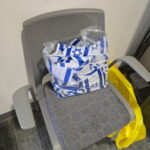The Military-Academic Complex
Jeff Dyche, now a psychologist at James Madison University, experienced culture shock during his stint at the U. S. Air Force Academy (AFA). “Even the president of the AFA (called the ‘superintendent,’ a three-star general) rarely has a university conferred master’s degree, let alone a doctorate,” Dyche relates in the Journal of Academic Freedom. “He does have a master’s, as all generals do, but his was likely conferred from a war college, or perhaps an online school, and often not in a traditional academic discipline.”
“Naturally, all superintendents of the AFA have been intelligent, accomplished men (no women yet), and many were Air Force heroes with air combat experience, but none have earned the obligatory academic degrees that are standard in modern academia. None have ever had positions of leadership in any civilian college or university.” The Journal of Academic Freedom is published by the American Association of University Professors (AAUP).
As well, Dyche discovered it is the “dean of the faculty” who “assigns grades.” Also, the faculty actually have office hours from 7:30 AM to 4:30 PM, so that, unlike most of academia, their time on the clock resembles that of a regular workplace, rather than the catch-as-catch can office schedules of most academics.
“The fact that civilians are even on the faculty still causes some animosity at the academy,” Dyche avers. “The AFA has only had an integrated military and civilian faculty since a 1994 act of Congress.” Dyche himself joined the Air Force faculty as a uniformed officer, albeit from a different branch of the Service.
“When I finished my PhD in 2000, instead of taking a post-doc or tenure-track job, I joined the Navy as a ‘research psychologist,’” Dyche recounts. “My first assignment was in research and development in support of American warfighters, which in my case was performing sleep and fatigue research in Navy shore-based laboratories as well as onboard submarines.”
“However, after less than four years of active service, I was offered the chance to teach at the AFA in an officer exchange program, a program that allows members of a ‘sister’ service to work at one of the military academies.”
Still and all, prior to his Service career, Dyche had been raised in a traditional academic milieu. “Since my background is from a family of academics, and I had taught numerous courses as an adjunct at several civilian colleges, I thought I knew what to expect.”
He apparently did not expect administrators to regard social science research as “fuzzy” and to view his own project—whether sleep deprivation affects job performance—with skepticism.
Malcolm A. Kline is the Executive Director of Accuracy in Academia.
If you would like to comment on this article, e-mail contact@academia.org.




